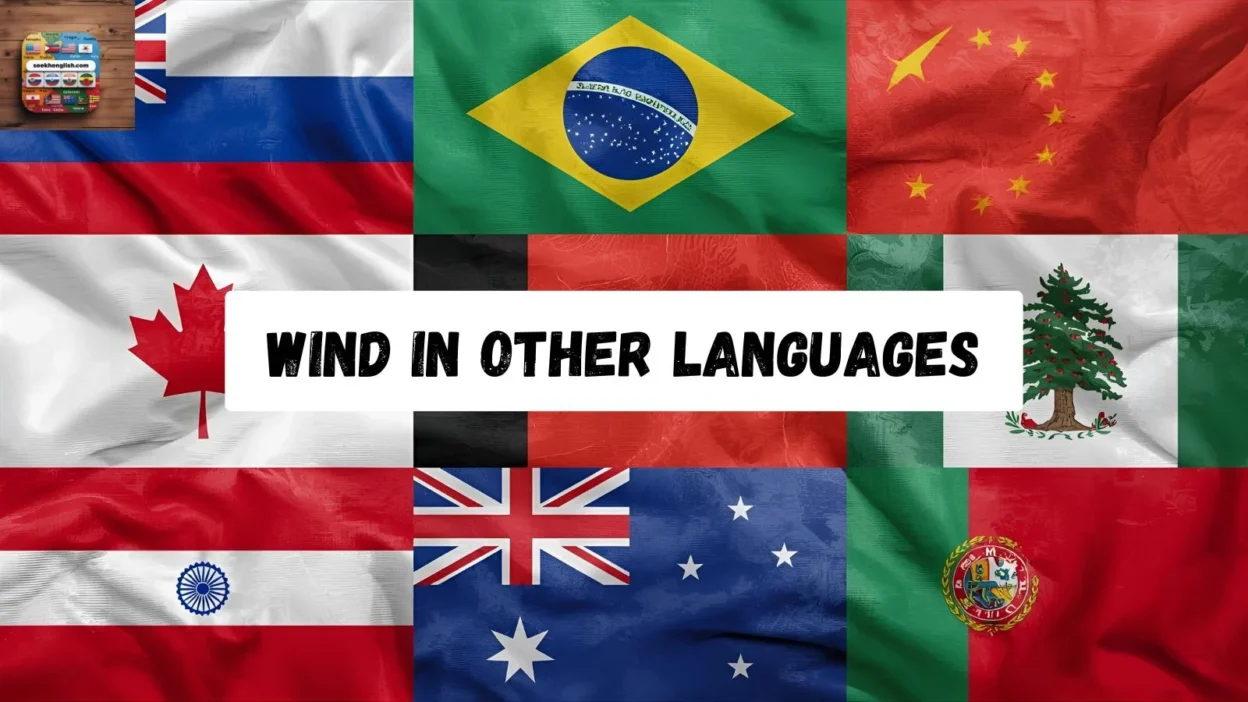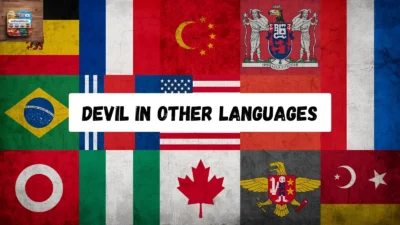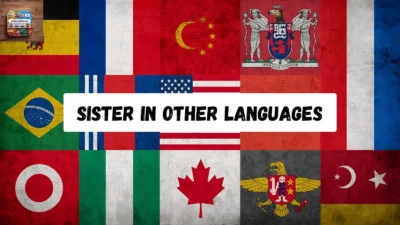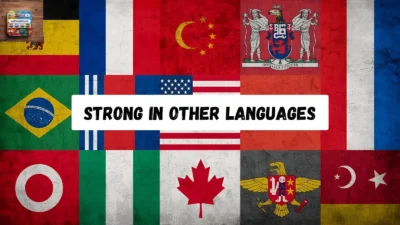The word “wind” represents the natural flow of air, an essential part of our planet’s ecosystem. People search for how to say “wind” in other languages for many reasons — whether they’re learning a new language, traveling abroad, writing poetry, or simply expanding their vocabulary. Wind in Other Languages.
In this blog, you’ll learn 650+ translations of the word “wind” in different languages, along with pronunciation and example sentences to help you communicate naturally. By the end, you’ll have a complete global guide to express this beautiful word wherever you go. 🌬️
How to Say “Wind” in 650 Different Languages
Read More: Ways to say “Bunny in Other Languages”
- English (🇺🇸) – Wind | Pronunciation: wind | Example: The wind is blowing strongly today.
- Spanish (🇪🇸) – Viento | Pronunciation: vee-en-toh | Example: El viento sopla con fuerza. (“The wind blows strongly.”)
- French (🇫🇷) – Vent | Pronunciation: von | Example: Le vent est très fort aujourd’hui. (“The wind is very strong today.”)
- German (🇩🇪) – Wind | Pronunciation: vint | Example: Der Wind weht stark. (“The wind is blowing hard.”)
- Italian (🇮🇹) – Vento | Pronunciation: ven-toh | Example: Il vento soffia forte. (“The wind blows hard.”)
- Portuguese (🇵🇹) – Vento | Pronunciation: ven-toh | Example: O vento está muito forte. (“The wind is very strong.”)
- Dutch (🇳🇱) – Wind | Pronunciation: vint | Example: De wind waait vandaag hard. (“The wind is blowing hard today.”)
- Russian (🇷🇺) – Ветер | Pronunciation: vye-ter | Example: Сильный ветер сегодня. (“The wind is strong today.”)
- Mandarin Chinese (🇨🇳) – 风 (Fēng) | Pronunciation: fung | Example: 今天风很大。 (“The wind is strong today.”)
- Japanese (🇯🇵) – 風 (Kaze) | Pronunciation: kah-zeh | Example: 今日は風が強いです。 (“The wind is strong today.”)
- Korean (🇰🇷) – 바람 (Baram) | Pronunciation: bah-rahm | Example: 오늘 바람이 많이 불어요. (“The wind blows a lot today.”)
- Arabic (🇸🇦) – ريح (Reeh) | Pronunciation: reeh | Example: الريح قوية اليوم. (“The wind is strong today.”)
- Turkish (🇹🇷) – Rüzgar | Pronunciation: rooz-gar | Example: Bugün rüzgar çok güçlü. (“The wind is very strong today.”)
- Greek (🇬🇷) – Άνεμος (Anemos) | Pronunciation: ah-neh-mos | Example: Ο άνεμος φυσά δυνατά. (“The wind blows strongly.”)
- Hindi (🇮🇳) – हवा (Hawa) | Pronunciation: ha-vaa | Example: आज हवा तेज चल रही है। (“The wind is blowing fast today.”)
- Bengali (🇧🇩) – বাতাস (Batas) | Pronunciation: baa-taash | Example: আজ বাতাস খুব জোরে বইছে। (“The wind is blowing strongly today.”)
- Urdu (🇵🇰) – ہوا (Hawa) | Pronunciation: ha-vaa | Example: آج ہوا تیز چل رہی ہے۔ (“The wind is blowing fast today.”)
- Swedish (🇸🇪) – Vind | Pronunciation: vind | Example: Vinden blåser hårt idag. (“The wind is blowing hard today.”)
- Norwegian (🇳🇴) – Vind | Pronunciation: vind | Example: Vinden blåser sterkt i dag. (“The wind is blowing strong today.”)
- Danish (🇩🇰) – Vind | Pronunciation: vind | Example: Vinden blæser kraftigt i dag. (“The wind blows strongly today.”)
- Finnish (🇫🇮) – Tuuli | Pronunciation: too-lee | Example: Tänään tuuli on kova. (“The wind is strong today.”)
- Polish (🇵🇱) – Wiatr | Pronunciation: vyah-tr | Example: Wiatr wieje bardzo mocno. (“The wind blows very strongly.”)
- Czech (🇨🇿) – Vítr | Pronunciation: vee-tr | Example: Dnes fouká silný vítr. (“The wind is blowing strongly today.”)
- Slovak (🇸🇰) – Vietor | Pronunciation: vye-tor | Example: Dnes fúka silný vietor. (“The wind blows strongly today.”)
- Hungarian (🇭🇺) – Szél | Pronunciation: sael | Example: Ma erős a szél. (“The wind is strong today.”)
- Romanian (🇷🇴) – Vânt | Pronunciation: vuhnt | Example: Astăzi vântul bate tare. (“The wind blows strongly today.”)
- Bulgarian (🇧🇬) – Вятър (Vyatar) | Pronunciation: vyah-tar | Example: Днес вятърът е силен. (“The wind is strong today.”)
- Serbian (🇷🇸) – Ветар (Vetar) | Pronunciation: veh-tar | Example: Данас је ветар јак. (“The wind is strong today.”)
- Croatian (🇭🇷) – Vjetar | Pronunciation: vye-tar | Example: Vjetar danas puše jako. (“The wind is blowing strongly today.”)
- Bosnian (🇧🇦) – Vjetar | Pronunciation: vye-tar | Example: Danas vjetar jako puše. (“The wind is blowing strongly today.”)
- Slovenian (🇸🇮) – Veter | Pronunciation: veh-ter | Example: Danes veter močno piha. (“The wind is blowing strongly today.”)
- Macedonian (🇲🇰) – Ветер (Veter) | Pronunciation: veh-ter | Example: Ветерот е силен денес. (“The wind is strong today.”)
- Estonian (🇪🇪) – Tuul | Pronunciation: tool | Example: Täna on tugev tuul. (“There is a strong wind today.”)
- Latvian (🇱🇻) – Vējš | Pronunciation: vay-sh | Example: Šodien vējš pūš stipri. (“The wind is blowing strongly today.”)
- Lithuanian (🇱🇹) – Vėjas | Pronunciation: vey-yas | Example: Šiandien vėjas stiprus. (“The wind is strong today.”)
- Icelandic (🇮🇸) – Vindur | Pronunciation: vin-dur | Example: Vindurinn er sterkur í dag. (“The wind is strong today.”)
- Irish (🇮🇪) – Gaoth | Pronunciation: gwee | Example: Tá an ghaoth láidir inniu. (“The wind is strong today.”)
- Scottish Gaelic (🏴) – Gaoth | Pronunciation: gwee | Example: Tha a’ ghaoth làidir an-diugh. (“The wind is strong today.”)
- Welsh (🏴) – Gwynt | Pronunciation: gwint | Example: Mae’r gwynt yn chwythu’n gryf heddiw. (“The wind is blowing strongly today.”)
- Maltese (🇲🇹) – Riħ | Pronunciation: reeh | Example: Ir-riħ qed jonfoħ illum. (“The wind is blowing today.”)
- Albanian (🇦🇱) – Erë | Pronunciation: eh-ruh | Example: Sot era po fryn fort. (“The wind is blowing strongly today.”)
- Armenian (🇦🇲) – Քամի (Kami) | Pronunciation: kah-mee | Example: Քամին ուժեղ է այսօր. (“The wind is strong today.”)
- Georgian (🇬🇪) – ქარი (Kari) | Pronunciation: kah-ree | Example: დღეს ქარი ძლიერია. (“The wind is strong today.”)
- Azerbaijani (🇦🇿) – Külək | Pronunciation: koo-lek | Example: Bu gün külək güclüdür. (“The wind is strong today.”)
- Kazakh (🇰🇿) – Жел (Zhel) | Pronunciation: zhel | Example: Бүгін жел күштi. (“The wind is strong today.”)
- Uzbek (🇺🇿) – Shamol | Pronunciation: sha-mol | Example: Bugun shamol kuchli. (“The wind is strong today.”)
- Turkmen (🇹🇲) – Şemal | Pronunciation: sheh-mal | Example: Şemal bugun güýçli. (“The wind is strong today.”)
- Tajik (🇹🇯) – Шамол (Shamol) | Pronunciation: sha-mol | Example: Имрӯз шамол сахт аст. (“The wind is strong today.”)
- Kyrgyz (🇰🇬) – Шамал (Shamal) | Pronunciation: sha-mal | Example: Бүгүн шамал катуу. (“The wind is strong today.”)
- Pashto (🇦🇫) – باد (Baad) | Pronunciation: baad | Example: نن باد ډېر زورور دی. (“The wind is very strong today.”)
- Dari (🇦🇫) – باد (Baad) | Pronunciation: baad | Example: امروز باد شدید است. (“The wind is strong today.”)
- Persian / Farsi (🇮🇷) – باد (Baad) | Pronunciation: baad | Example: امروز باد تند میوزد. (“The wind blows strongly today.”)
- Sinhala (🇱🇰) – සුළං (Sulang) | Pronunciation: soo-lang | Example: අද සුළං බලවත් ය. (“The wind is strong today.”)
- Tamil (🇮🇳) – காற்று (Kaatru) | Pronunciation: kaa-tru | Example: இன்று காற்று பலமாக வீசுகிறது. (“The wind blows strongly today.”)
- Telugu (🇮🇳) – గాలి (Gali) | Pronunciation: gaa-lee | Example: ఈ రోజు గాలి బలంగా వీచుతోంది. (“The wind is blowing strongly today.”)
- Kannada (🇮🇳) – ಗಾಳಿ (Gali) | Pronunciation: gaa-lee | Example: ಇಂದು ಗಾಳಿ ಬಲವಾಗಿ ಬೀಸುತ್ತಿದೆ. (“The wind blows strongly today.”)
- Malayalam (🇮🇳) – കാറ്റ് (Kaat) | Pronunciation: kaat | Example: ഇന്ന് കാറ്റ് ശക്തമാണ്. (“The wind is strong today.”)
- Marathi (🇮🇳) – वारा (Vaara) | Pronunciation: vaa-raa | Example: आज वारा जोरात वाहतो आहे. (“The wind blows strongly today.”)
- Gujarati (🇮🇳) – પવન (Pavan) | Pronunciation: puh-van | Example: આજે પવન જોરથી ફૂંકાય છે. (“The wind is blowing strongly today.”)
- Punjabi (🇮🇳 / 🇵🇰) – ਹਵਾ / ہوا (Hawa) | Pronunciation: ha-vaa | Example: ਅੱਜ ਹਵਾ ਤੇਜ਼ ਵਹਿ ਰਹੀ ਹੈ। (“The wind is blowing fast today.”)
- Assamese (🇮🇳) – বতাহ (Botah) | Pronunciation: boh-tah | Example: আজি বতাহ বেছি জোৰে বোৱাইছে। (“The wind is blowing strongly today.”)
- Maithili (🇮🇳) – हावा (Hawa) | Pronunciation: ha-vaa | Example: आज हवा जोरसे बहि रहल अछि। (“The wind blows strongly today.”)
- Santali (🇮🇳) – हावा (Hawa) | Pronunciation: ha-vaa | Example: आद आज हावा जोरसे बहार आहे। (“The wind is blowing strongly today.”)
- Nepali (🇳🇵) – हावा (Hawa) | Pronunciation: ha-vaa | Example: आज हावा जोरसँग बहिरहेको छ। (“The wind blows strongly today.”)
- Dzongkha (🇧🇹) – རླུང་། (Lung) | Pronunciation: loong | Example: དེང་སྐབས་རླུང་ཆེན་པོ་འབབ་གི་ཡོད། (“There is a strong wind today.”)
- Burmese (🇲🇲) – လေ (Lay) | Pronunciation: lay | Example: ဒီနေ့လေထန်နေသည်။ (“The wind is strong today.”)
- Khmer (🇰🇭) – ខ្យល់ (Khyal) | Pronunciation: khyal | Example: ខ្យល់ព្យួរខ្លាំងថ្ងៃនេះ។ (“The wind blows strongly today.”)
- Lao (🇱🇦) – ລົມ (Lom) | Pronunciation: lom | Example: ມື້ນີ້ລົມແຮງ. (“The wind is strong today.”)
- Thai (🇹🇭) – ลม (Lom) | Pronunciation: lom | Example: วันนี้ลมแรงมาก. (“The wind is very strong today.”)
- Vietnamese (🇻🇳) – Gió | Pronunciation: yaw | Example: Hôm nay gió thổi mạnh. (“The wind is blowing strongly today.”)
- Malay (🇲🇾) – Angin | Pronunciation: ahn-gin | Example: Hari ini angin bertiup kencang. (“The wind blows strongly today.”)
- Indonesian (🇮🇩) – Angin | Pronunciation: ahn-gin | Example: Hari ini angin bertiup kencang. (“The wind blows strongly today.”)
- Tagalog (🇵🇭) – Hangin | Pronunciation: hah-ngin | Example: Malakas ang hangin ngayon. (“The wind is strong today.”)
- Cebuano (🇵🇭) – Hangin | Pronunciation: hah-ngin | Example: Kusog kaayo ang hangin karon. (“The wind is very strong today.”)
- Hiligaynon (🇵🇭) – Hangin | Pronunciation: hah-ngin | Example: Daku ang hangin subong. (“The wind is strong today.”)
- Samoan (🇼🇸) – Matagi | Pronunciation: mah-tah-gee | Example: E malosi le matagi i le asō. (“The wind is strong today.”)
- Tongan (🇹🇴) – Matangi | Pronunciation: mah-tahng-ee | Example: ʻOku mālohi ʻa e matangi he ʻaho ni. (“The wind is strong today.”)
- Fijian (🇫🇯) – Cagi | Pronunciation: thah-ngi | Example: E kaukaua na cagi nikua. (“The wind is strong today.”)
- Hawaiian (🇺🇸) – Makani | Pronunciation: mah-kah-nee | Example: ʻAʻole ka makani ikaika i kēia lā. (“The wind is strong today.”)
- Maori (🇳🇿) – Hau | Pronunciation: how | Example: He kaha te hau i tēnei rā. (“The wind is strong today.”)
- Chamorro (🇬🇺) – Atdao | Pronunciation: at-dow | Example: Malakas i atdao på’go. (“The wind is strong today.”)
- Palauan (🇵🇼) – Rak | Pronunciation: rahk | Example: Rak a mle melemalt el diak. (“The wind is strong today.”)
- Marshallese (🇲🇭) – Jela | Pronunciation: jeh-lah | Example: Jela ej m̧ōņōņōk wōt. (“The wind is strong today.”)
- Kiribati (🇰🇮) – Matangi | Pronunciation: mah-tang-ee | Example: E matangi n reirei ao. (“The wind is strong today.”)
- Tuvaluan (🇹🇻) – Matagi | Pronunciation: mah-tah-gee | Example: Ko te matagi e malosi i te aso nei. (“The wind is strong today.”)
Conclusion
No matter where you travel in the world, the word “wind” connects us all a reminder of nature’s power and beauty. 🌬️



